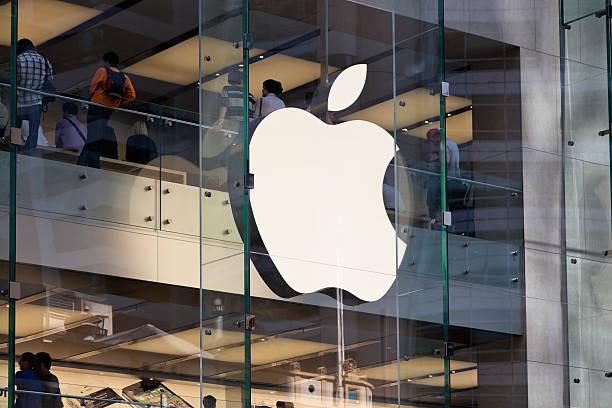Apple is poised to surpass $100 billion in annual revenue from its fast-growing services arm for the first time, even as mounting global regulatory challenges threaten its long-standing dominance in the app economy.
According to market data compiled by Visible Alpha, Apple’s services revenue for the fiscal year that ended in September is projected to reach approximately $108.6 billion, marking a 13% increase from the previous year.
This figure places Apple’s services business ahead of several Fortune 500 giants, including Disney, Tesla, and Tencent, in terms of annual sales.
The services division—overseen by senior executive Eddy Cue—includes key offerings such as iCloud storage, Apple Pay, AppleCare, and App Store transactions.
Over the past five years, the segment has more than doubled in size and become Apple’s most profitable growth driver, offsetting slowing iPhone sales.
Industry analysts predict that Apple’s services unit now contributes roughly a quarter of total revenue and as much as half of total profits, thanks to recurring income streams from subscriptions and digital transactions.
“User engagement on iPhones continues to rise, driven by both an expanding installed base and higher spending per device,” said Samik Chatterjee, an analyst at JPMorgan.
One of Apple’s most profitable arrangements remains its multibillion-dollar partnership with Google, which pays Apple to keep Google as the default search engine on its devices.
That deal largely survived scrutiny in the recent U.S. Department of Justice (DoJ) antitrust ruling against Google, providing relief to Apple shareholders.
However, Apple faces growing regulatory threats of its own. The U.S. DoJ has accused the company of exploiting its smartphone dominance to suppress competition through restrictive App Store rules, smartwatch limitations, and mobile payment systems.
Meanwhile, in the United Kingdom, a competition tribunal recently concluded that Apple had abused its “near absolute market power” in app distribution and payments—potentially exposing the company to £1.5 billion in damages. Apple has since called the ruling “flawed” and vowed to appeal.
Additionally, the UK’s Competition and Markets Authority (CMA) announced it will subject Apple’s mobile ecosystem to new digital market regulations, potentially forcing the introduction of alternative app stores or payment methods.
Apple, however, maintains that its tightly controlled ecosystem protects users’ privacy and security while supporting developers.
The company highlights recent policy changes, including reduced 15% App Store commissions for smaller developers and subscription-based services.
Despite these legal headwinds, analysts remain bullish on Apple’s long-term service expansion.
The company is investing in new verticals, such as live sports streaming—recently securing U.S. Formula 1 rights for $700 million—and is working on a major upgrade to Siri, its AI-powered assistant.
Looking ahead, projections suggest that Apple’s services business could account for over 30% of total revenue by 2030, potentially generating $175 billion annually.
By comparison, the iPhone is expected to make up about half of Apple’s projected $415 billion in total sales for fiscal 2025, with modest unit growth.
Services remain Apple’s most lucrative segment, boasting an estimated 75% gross margin—nearly double that of the iPhone’s 40%. This profitability has helped boost Apple’s overall gross margin from 38% in 2020 to roughly 47% today, underscoring how central services have become to the company’s financial strength and future growth.






















